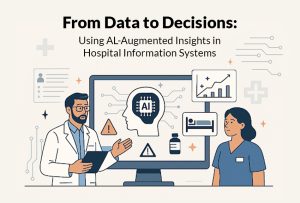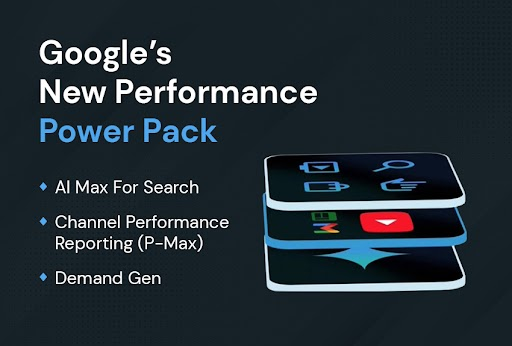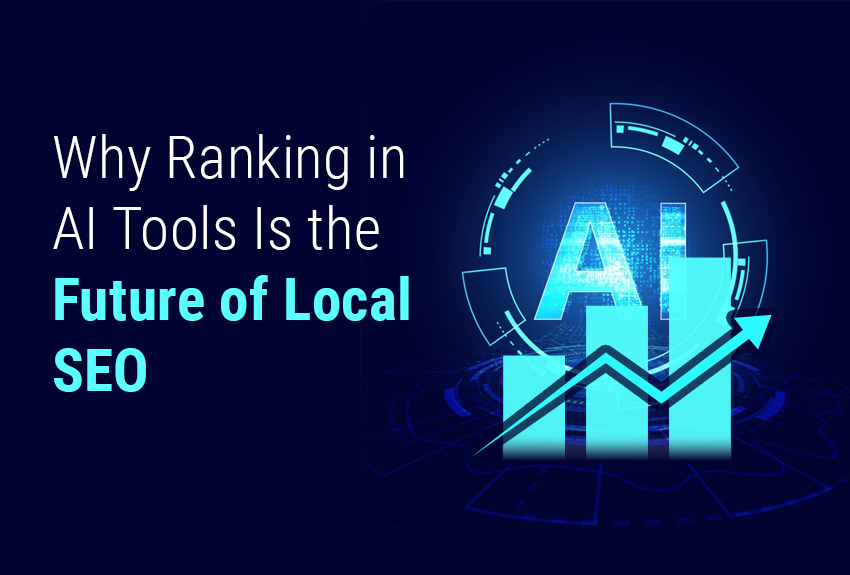
In today’s data-driven healthcare environment, hospitals and clinics are sitting on vast amounts of clinical, operational, and financial data. But without intelligent systems to analyze this data, its full potential remains untapped. This is where Artificial Intelligence (AI) steps in. AI-augmented insights can transform Hospital Information Systems (HIS) from passive data repositories into active decision-support platforms, enhancing patient care, reducing costs, and improving hospital efficiency.
At OpenSource Technologies (OST), we specialize in designing and implementing custom HIS platforms powered by AI capabilities. Our tailored solutions are already helping hospitals move from reactive to proactive care models. Here’s how:
Predicting Patient Readmissions with AI
Patient readmissions are a costly and often preventable burden on healthcare systems. According to the Agency for Healthcare Research and Quality (AHRQ), nearly 1 in 5 Medicare patients are readmitted within 30 days, costing over $20 billion annually in the U.S. alone.
By integrating machine learning algorithms into HIS, OST enables real-time risk stratification. Our models analyze variables like diagnosis history, lab results, length of stay, vital signs, and social determinants of health to flag high-risk patients before discharge.
How OST Helps:
We build predictive modules that seamlessly integrate into your existing HIS dashboards, enabling physicians to take preventive action—such as scheduling follow-ups, recommending remote monitoring, or arranging post-discharge care—thus reducing readmissions by up to 30%.
Optimizing Resource Allocation
Hospital operations rely heavily on proper resource allocation—beds, staff, equipment, and treatment schedules. Poor allocation can lead to overcrowding, long wait times, and underutilized assets.
With AI-enhanced analytics, our HIS platforms can forecast resource demand based on patient inflow trends, seasonal variations, and historical usage. This helps hospitals:
- Adjust nurse shifts to meet projected demand
- Optimize ICU bed availability
- Manage operating room scheduling efficiently
- Allocate equipment (e.g., ventilators, dialysis machines) in advance
According to a McKinsey report, hospitals that adopted AI-based resource forecasting saw operational cost reductions of up to 12% and a 25% improvement in patient throughput.
How OST Helps:
We create custom dashboards that visualize resource utilization trends and include AI-powered alerts and recommendations, helping your team make fast, data-informed decisions.
Reducing Medical Errors
Medical errors are a leading cause of preventable harm in healthcare, contributing to more than 250,000 deaths annually in the U.S., per a study by Johns Hopkins Medicine.
OST’s AI-powered HIS modules help reduce these errors by:
- Flagging potential drug interactions and dosage issues
- Analyzing clinician notes to catch overlooked symptoms
- Guiding diagnostic accuracy with natural language processing (NLP) tools
- Notifying care teams of lab result anomalies in real-time
How OST Helps:
We integrate AI APIs and models trained on real-world clinical data into our HIS platforms to offer decision-support recommendations at the point of care, minimizing risk and improving clinical accuracy.
Why Choose OST for AI-Augmented HIS?
At OpenSource Technologies, we don’t offer a one-size-fits-all approach. We:
- Build modular HIS platforms designed for integration with AI engines and third-party analytics tools
- Ensure HIPAA-compliant architectures to protect patient data privacy
- Use open-source frameworks for cost-efficiency and transparency
- Provide end-to-end AI lifecycle support, from model training to monitoring and optimization
- Offer real-time dashboards and intuitive UIs for doctors, nurses, and administrators
Our recent HIS implementations across hospitals in Pennsylvania and New Jersey have shown measurable success, including:
- 25% drop in readmissions within 6 months
- 20% improvement in staff productivity
- Significant reduction in diagnostic errors flagged by AI modules
Looking Ahead: AI Is Not the Future—It’s Now
Healthcare providers worldwide are rapidly embracing AI. A 2024 Deloitte survey showed that 75% of health executives consider AI a strategic priority, and 60% are already investing in AI for clinical decision support.
By embedding AI into Hospital Information Systems, we move closer to a future where hospitals are smarter, faster, and safer.
Let’s Build the Future of Healthcare Together
Whether you’re looking to modernize an outdated HIS or develop a new AI-ready platform, OpenSource Technologies (OST) is your trusted partner. With a strong focus on Custom Healthcare Development, AI Integration, and Digital Transformation, we build platforms that serve today’s needs and tomorrow’s possibilities.





